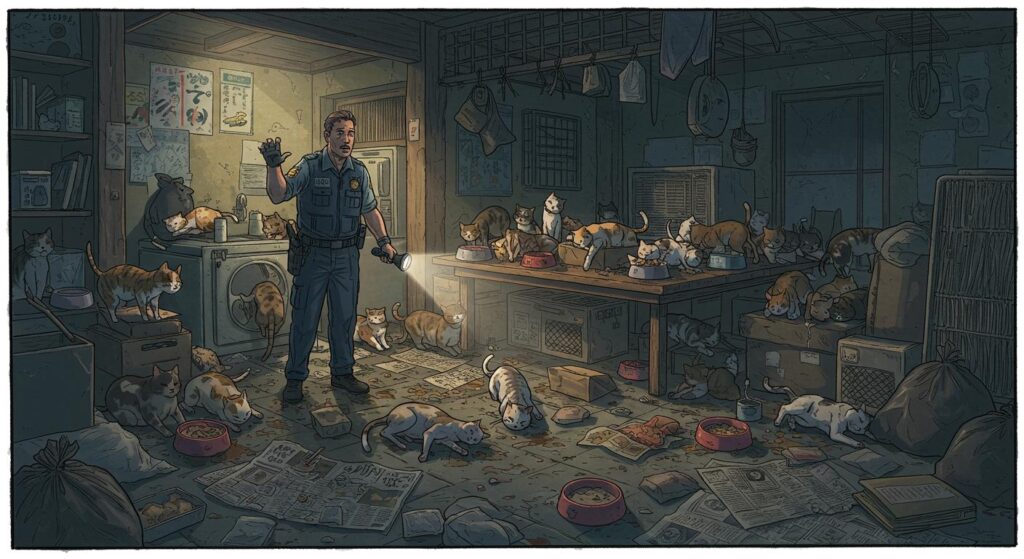Let’s file this one firmly under “news you’d suspect came from a particularly creative episode of The Twilight Zone, but no, it’s just Tuesday in America, circa 2025.” As detailed in a recent Newsweek report, prosecuting attorneys in West Virginia are actively floating the idea that women who miscarry could be investigated—or even prosecuted—depending on how they handle the remains and their emotional response. Yes, you read that right: Not only might grief be criminally scrutinized, but apparently the bathroom habits of the recently traumatized are ripe for review by law enforcement.
The Curious Case of the Involuntary Abortion
In an account included by Newsweek, Tom Truman, a prosecuting attorney in Raleigh County, explained that women might face charges if they “buried, flushed, or hidden evidence of their miscarriage.” The idea is that by disposing of fetal remains in certain ways, women could potentially violate state laws about handling human remains—laws that, as the outlet points out, were originally written for circumstances considerably darker than private crisis in one’s own bathroom.
Adding another layer, Truman told local reporters that even a woman’s emotional response could count. Expressions of relief after a loss might draw law enforcement interest. In his own words, “If you were relieved, and had been telling people, ‘I’d rather get run over by a bus than have this baby,’ that may play into law enforcement’s thinking.” If we’re keeping score, that’s a legal system now chewing over private feelings along with physical evidence.
While state law specifically states miscarriages aren’t classified as abortions and don’t require police notification, Newsweek highlights Truman’s assertion that separate statutes about disposing of remains could “open a window” for prosecution. The distinction between law and application grows foggier with each quote.
When “Fetal Personhood” Moves Off Paper
Underlying these developments, as detailed in Newsweek’s coverage, is the often-theoretical “fetal-personhood” debate—the concept that a fetus enjoys the same legal rights as a person. Prosecutors may frame the handling of miscarriage remains as the handling of a deceased individual. Earlier in the article, it’s mentioned that this legal philosophy is now inching out of the realm of legislative theory and into people’s kitchens and bathrooms.
This isn’t confined to West Virginia. The outlet recounts how a Georgia woman was arrested in March after miscarrying, with the police called when she reportedly placed fetal remains in a dumpster. In Texas, a woman was charged with “corpse abuse” after a miscarriage in a bathroom; she was later released for lack of evidence, but only after a harrowing legal ordeal.
Newsweek also flags concerns from mental health professionals, pointing out that an estimated 10 to 20 percent of known pregnancies end in miscarriage and that the fallout can include PTSD and depression. The notion of criminalizing these losses seems, at best, a bizarre approach to public well-being. At worst, it borders on bureaucratic cruelty.
Intent, Emotion, Investigation
Newsweek’s reporting draws special attention to how “intent” and emotional state may now be subject to legal scrutiny. Comments attributed to Truman focus heavily on subjective labels: “What was your intent? … Were you trying to hide something, or were you just so emotionally distraught you couldn’t do anything else?” Statements made to friends and family—impressions of relief or distress—could conceivably be used as evidence.
Is anyone else blinking at the spectacle of law enforcement weighing the sincerity of someone’s grief or the sequence of their panic? The idea of a prosecutor parsing loss—emotionally and legally—would sound farfetched if it weren’t in plain print.
The Tangle of Law and Grief
For clarity’s sake, the Newsweek article emphasizes that, as of now, no one in West Virginia has been charged after a miscarriage under these provisions. However, Truman is quoted as saying “many prosecuting attorneys… are open to this,” leaving open the possibility that today’s speculation could become tomorrow’s precedent.
Just to add to the strangeness, Truman’s guidance to women is to call 911, a doctor, or law enforcement if a miscarriage occurs, in order to shield themselves from later suspicion. As the outlet documents, the logic here is remarkable: comfort after a traumatic loss now apparently runs through a police dispatcher.
Nationwide Patterns, Not Just Local Oddities
Shifting perspective, Newsweek demonstrates that West Virginia is hardly an outlier. Georgia and Texas have recently drawn attention for prosecuting women over the handling of fetal remains following miscarriages. In comments provided to the outlet, Dana Sussman of Pregnancy Justice argues that there are no set protocols—“No one is taught how to handle fetal remains, and police and prosecutors should not be weighing in on how women in this situation respond.”
Additionally, insights from Wendy Bach, a principal investigator referenced in Newsweek, describe the post-Dobbs legal landscape as reaching “a high-water mark in pregnancy criminalization, following from increased suspicion and surveillance of pregnant people.” In short, what was once unthinkable policy in most states is now gradually gaining legal momentum.
Private Tragedy or Public Crime?
Taken together, these details paint a picture that feels as much like satirical fiction as breaking news. The immutable lines between privacy, grief, and criminality are now shifting, at least in the realm of reproductive loss. If authorities can’t agree on how women “should” process trauma, but may still criminally penalize them for doing it the “wrong” way—what could the next logical extension be?
Perhaps the strangest part, really, is just how mundane the machinery of prosecution can sound when described in such measured tones. Miscarriage, in 2025, is increasingly described not simply as a tragedy but as a legal event, and sometimes one with criminal potential. Where is the line drawn, and, for those directly affected, does it matter anymore who draws it?
One wonders: As laws creep further into intensely personal moments, do the architects realize what rooms they’re walking into—or is the map already lost?







